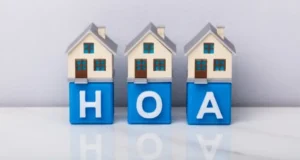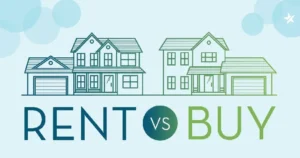Purchasing a preforeclosure property is an excellent way to acquire a home below market value.
While most people are familiar with foreclosed homes, preforeclosures offer a unique opportunity to negotiate directly with the owner and potentially avoid the competitive nature of auctions.
This article will help you navigate the preforeclosure buying process successfully.
What is Preforeclosure?
Preforeclosure is the stage where a homeowner has fallen behind on their mortgage payments, and the lender has issued a notice of default. At this point, the homeowner still has a chance to avoid foreclosure by catching up on payments, selling the property, or negotiating alternatives with the lender.
- Timeline: Preforeclosure can last weeks to over a year, depending on the circumstances.
- Opportunities: Buyers can negotiate directly with owners or purchase through a short sale, often at a discount.
Many preforeclosure properties remain in good condition, making them attractive options for potential buyers. However, navigating this process requires research, preparation, and tact.
1. Research the Property
Locating preforeclosure properties involves accessing public records or using online resources.
- Public Records: Notices of default are accessible through the county recorder’s or tax assessor’s office.
- Legal Publications: Some counties publish legal notices in newspapers, which may list preforeclosure properties.
- Online Services: Websites like RealtyTrac or Zillow often list preforeclosures.
Factors to Research:
- Neighborhood Analysis: Compare property values in the area to ensure you’re getting a deal.
- Condition of the Home: While many preforeclosures are in good shape, some may require repairs. Factor these into your budget.
| Data Source | Information Available |
|---|---|
| County Records | Property details, mortgage balance |
| Tax Assessor’s Office | Current value, tax history |
| Online Real Estate Tools | Comparable property sales |
2. Line up Your Financing
Having your finances in order before approaching a preforeclosure owner is critical. Sellers are often in financial distress, so showing you’re a serious buyer with secured financing can make negotiations smoother.
Steps to Secure Financing:
- Preapproval Letter: Get preapproved by a lender to demonstrate your buying power.
- Budgeting: Decide how much you can realistically spend, including closing costs and potential repairs.
- Explore Loan Options:
- Conventional loans often require a 620+ credit score.
- FHA loans may accept scores as low as 580.
- VA loans offer 0% down for eligible veterans.
Cash Buyers:
- Advantages: Cash offers are more attractive because they remove contingencies tied to loan approvals.
- Negotiation Leverage: Sellers may accept a lower price for the assurance of a quick, hassle-free sale.
| Financing Option | Best For | Down Payment | Credit Score |
|---|---|---|---|
| Conventional Loans | Strong credit buyers | 5%-20% | 620+ |
| FHA Loans | First-time buyers | 3.5% | 580+ |
| VA Loans | Veterans and active duty | 0% | Flexible |
3. For Sale or Not for Sale?
Not all preforeclosure properties are officially for sale. Approaching homeowners requires sensitivity, as they may still occupy the property and face financial distress.
Ways to Approach Homeowners:
- Send a Letter: Introduce yourself and express your interest in the property. Be transparent about your intentions, whether for personal use or investment.
- Make a Call: Politely ask if they are open to discussing a potential sale. Keep the conversation respectful and non-confrontational.
- Knock on the Door: If you decide to visit in person, bring a letter with your contact details and allow the homeowner time to process your offer.
Tips for Successful Communication:
- Emphasize your willingness to help them avoid foreclosure.
- Be prepared for rejection, as some homeowners may not be ready to sell.
4. Go Back to Your Lender
Once you’ve reached an agreement with the seller, your lender will need specific documentation to finalize the financing process.
Required Documents:
- Purchase Agreement: Signed by both parties.
- Property Appraisal: Confirms the property’s value.
- Proof of Funds: Down payment and other financial resources.
- Current Financials: Includes your debts, assets, and income.
Budget for associated fees, such as appraisals and loan processing, to avoid surprises. A professional, such as a real estate agent or attorney, can help you navigate this paperwork.
5. Close It Up
Closing on a preforeclosure property requires coordination between the buyer, seller, lender, and title company.
The Closing Process:
- Title Search: Ensures the property is free of liens or legal disputes.
- Document Review: Have all agreements and disclosures reviewed by a professional.
- Closing Costs: Typically range from 2%-5% of the loan amount and cover fees like title insurance and loan origination.
Timelines:
- Mortgage Closings: Usually take 30-90 days.
- Cash Purchases: Can close in as little as two weeks.
Before signing the final documents, double-check all terms and conditions to ensure they align with the agreement.
6. Before Moving In
Congratulations! You’ve successfully purchased a preforeclosure property. Before settling in, there are a few final steps to ensure a smooth transition.
Pre-Move Tasks:
- Change the Locks: Enhance security by installing new locks.
- Inspect Utilities: Verify that water, electricity, and other services are functioning.
- Deep Clean: Hire a professional cleaning service or do it yourself before bringing in furniture.
- Plan Repairs: Address any maintenance or cosmetic updates while the home is still empty.
Benefits of Buying Preforeclosure Properties
- Cost Savings: Purchase below market value.
- Less Competition: Avoid bidding wars common in foreclosure auctions.
- Customization: Work directly with the owner to negotiate terms.
Challenges to Consider
- Legal Complexities: Ensure proper documentation to avoid future disputes.
- Emotional Sellers: Be prepared for sensitive negotiations with distressed homeowners.
- Property Condition: Some homes may require significant repairs or upgrades.
Frequently Asked Questions
1. Can I buy a preforeclosure property without financing?
Yes, cash purchases are often preferred and can speed up the closing process.
2. How do I find preforeclosure properties?
Use public records, online resources, or legal notices in local newspapers.
3. Are preforeclosure properties always discounted?
Not always, but many are sold below market value to avoid foreclosure.
4. Can I negotiate directly with the homeowner?
Yes, but approach respectfully and be prepared for a range of responses.
5. What risks are involved in buying preforeclosure homes?
Potential risks include title issues, hidden repairs, or difficulty negotiating with the seller.
6. Do I need a real estate agent?
While not required, hiring an agent familiar with preforeclosures can streamline the process.
7. How long does it take to buy a preforeclosure property?
Timelines vary but typically range from 30-90 days for financed purchases.
8. Are preforeclosure properties a good investment?
Yes, they can be, especially for buyers seeking below-market deals or rental income opportunities.
The Bottom Line
Buying a preforeclosure property can be a rewarding venture, offering both financial savings and the opportunity to customize your investment.
While the process involves research, tactful communication, and financial preparation, the potential benefits often outweigh the challenges.
By understanding the steps involved and working with professionals, you can secure a great deal and turn a preforeclosure home into your dream property or a profitable investment.















